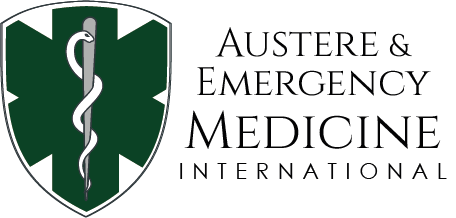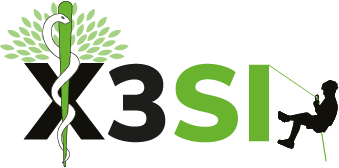Overview
Austere Critical Care is an intensive and specialized course designed for healthcare professionals seeking to enhance their skills in the swift recognition and management of immediate life threats involving the circulatory, respiratory, and nervous systems in challenging environments.
In this comprehensive program, participants will delve deep into the principles and practices of critical care, focusing on scenarios that demand rapid, precise, and adaptable interventions. Whether you are a paramedic, nurse, physician, or first responder, this course is tailored to equip you with the expertise needed to deliver high-quality critical care even in austere and resource-limited settings.
Through immersive simulations, hands-on training, and expert-led discussions, you will gain a profound understanding of BLS techniques, advanced airway management, and the integration of circulatory, respiratory, and nervous system assessments into your emergency response toolkit. Join us on this educational journey where you will master the art of critical care in austere environments, ensuring you can make a significant impact in saving lives when every second counts.
Our experienced instructors will guide you through the intricacies of rapid patient assessment, effective communication in high-stress situations, and the utilization of limited resources for optimal outcomes. By the end of this course, you will possess the confidence and skills necessary to navigate critical emergencies with competence and compassion, ensuring that you can provide the highest standard of care, regardless of the challenges posed by the environment.
Introduction to Emergencies in the Austere Context:
Prepare for emergencies in challenging environments. This module provides crucial insights into crisis management in austere settings, emphasizing adaptability and efficient use of limited resources. Participants will gain a deep understanding of the unique challenges posed by austere contexts, ensuring effective and compassionate responses in diverse emergency situations.
Algorithms for the Management of Patients in Extremis in the Austere Context:
Learn advanced strategies for handling critical patients in challenging environments. This module focuses on evidence-based algorithms, enabling healthcare professionals to make rapid, informed decisions when faced with life-threatening situations in austere conditions. Participants will develop expertise in assessing, prioritizing, and managing patients in extremis, ensuring optimal care even in resource-limited settings.
Austere Basic Life Support:
Master the skills of lifesaving with our Austere Basic Life Support (BLS) module. This module covers more than just the essential techniques of CPR, airway management, and defibrillation; it explores the considerations of resuscitation in challenging circumstants, empowering participants to respond confidently in emergency situations no matter where they occur. Whether you’re a healthcare professional or a concerned citizen, BLS certification is vital for anyone seeking to make a difference and provide immediate assistance during medical crises.
Trauma Arrest:
Gain expertise in managing trauma-related cardiac arrest through our Trauma Arrest training. This module focuses on the unique challenges posed by traumatic injuries, equipping participants with advanced skills to assess and intervene effectively during trauma-induced cardiac arrest situations. Participants will learn evidence based strategies to optimize patient outcomes in high-stress, time-critical trauma scenarios.
Reversible & Preventable Causes of Cardiac Arrest:
Understand the underlying factors contributing to cardiac arrest and learn how to address reversible and preventable causes. This module explores the physiological basis of cardiac arrest, enabling healthcare professionals to identify and treat reversible conditions promptly. By addressing the root causes, participants will enhance their ability to prevent cardiac arrests and improve patient survival rates.
Acute Coronary Syndrome:
Delve into the complexities of Acute Coronary Syndrome (ACS). Participants will gain in-depth knowledge about the pathophysiology, assessment, and evidence-based management of ACS. Through case studies and practical exercises, participants will enhance their skills in recognizing and responding to ACS, ensuring timely and effective interventions for patients experiencing cardiac emergencies.
Non-ACS Cardiac Emergencies:
Explore a wide spectrum of non-ACS cardiac emergencies, including AAA, aortic rupture, cardiac tamponade and more. Participants will learn to identify and manage these critical conditions, equipping them with the expertise to respond swiftly and effectively. Through interactive sessions and real-life scenarios, healthcare professionals will enhance their ability to assess and provide appropriate care for patients with non-ACS cardiac emergencies.
Catastrophic Hemorrhage:
Equip yourself with the skills to manage catastrophic hemorrhage. This course focuses on rapid assessment, hemostatic techniques, and wound management, enabling participants to control severe bleeding effectively. Participants will learn to prioritize interventions and utilize available resources efficiently, ensuring timely and life-saving measures for patients experiencing catastrophic
Respiratory System Emergencies:
Master the assessment and management of respiratory system emergencies. Participants will explore a wide range of respiratory conditions, including asthma, pneumonia, and respiratory distress syndrome. Through interactive learning modules and simulation exercises, participants will enhance their skills in identifying respiratory emergencies, providing appropriate interventions, and ensuring optimal patient outcomes.
Anaphylaxis:
Develop expertise in managing severe allergic reactions. Participants will learn to recognize the signs and symptoms of anaphylaxis and gain hands-on experience in administering life-saving interventions, such as epinephrine. This course emphasizes rapid assessment and decisive action, empowering healthcare
professionals to provide timely and effective care to patients experiencing severe allergic reactions.
Brain Injury:
Delve into the complexities of brain injury assessment and management. Participants will gain confidence differentiating head injury from traumatic brain injury, increased intracranial pressure, and post-concussive syndrome without imaging. Through case studies and practical exercises, participants will enhance their skills in recognizing early signs, conducting neurological assessments, and providing evidence-based interventions. This course empowers participants to optimize patient outcomes and improve the quality of care for individuals with brain injuries.
Spine Injury:
Learn to assess and manage spine injuries with precision. Participants will explore the intricacies of spinal cord trauma, focusing on early recognition, immobilization techniques, and safe patient handling – as well as developing a strong understanding of when immobilization may not be required, and why certain tools and techniques are now out-moded.
Through hands-on training and simulation exercises, participants will enhance their skills in preventing secondary injuries and ensuring the best possible care for patients with spine injuries. This course emphasizes evidence-based practices and effective communication, enabling participants to provide compassionate and competent care for individuals with spine injuries.
Certification
Upon successful completion of this course, participants receive a certificate of completion from Austere & Emergency Medicine International, valid for three years. Participants who complete all four modules (ACC, ATR, AMR, AER) will receive Austere Medic Certification.

Recertification
Eligible graduates from other recognized wilderness or austere medical schools may recertify their WEMT with this course. Candidates wishing to upgrade from WEMT to Austere Medic must complete all four modules (ACC. ATR, AMR, AER).
Candidates wishing to recertify must have a current WEMT (unexpired or within the grace period of the issuing school) earned in one of the following course types:
- A recognized WEMT, WEMS or AM course with a minimum of 45 hours of in-person instruction.
- An eligible recertification course with a minimum of 24 hours of in-person instruction.
Candidates wishing to recertify an Austere Medic must ensure that they have completed all four modules within the last 36 months.
Location & Logistics
We meet each morning at 0800 and you will be dismissed by 1830. Much of the course takes place outdoors, in various locations within a 30-minute radius of the training centre, so please do not be late.
AccomodationThere are various hotels within a 20-minute grab/taxi ride of the training centre, ranging from 4-star business hotels to 2-star budget hotels. Please remember that you get what you pay for, and the hotels are not owned or operated by X3SI. Previous students have stayed in hotels including: Four Points Sheraton, Puchong (further away, nicer, more expensive), Hilton Garden Inn (value for money), and M-Design, Hazzana, OYO502, and Puchong Business hotel (nearby and cheap).
Catering
The advertised course cost includes lunches, coffee, and tea daily. Breakfast and dinner are not included.
What to bring
Participants should bring notepad and pen.
Those attending should wear sturdy, closed toe shoes, bring raincoat and clothes that are ok to get wet/dirty/ripped/stained.
Participants will also require an internet connected device to complete the exam on day three.
Enroll Now
Ready to Elevate Your Expertise?
Enroll in this program and stay at the forefront of emergency medicine. Acquire in-depth knowledge, refine your skills, and achieve mastery in managing emergencies in austere environments. Invest in your professional development and make a significant impact on patient outcomes.
Partial scholarships and bursaries are available on this course. For more information:
https://aemed.net/sponsorship/
